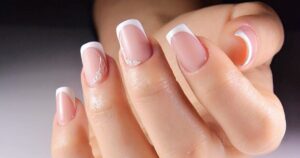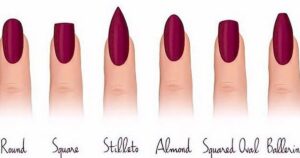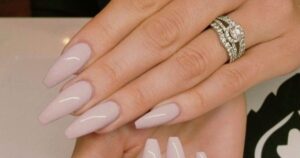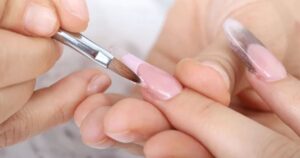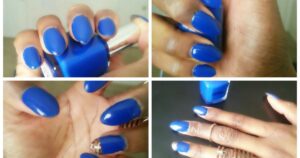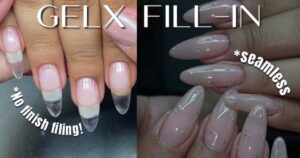Have you ever wondered what would happen if you added baking soda to gray hair? This common household ingredient can have some surprising effects on those silver strands. Gray hair often has a yellowish tint. This can be due to environmental pollutants, cigarette smoke, and certain hair products. So, what happens when you add baking soda to gray hair? Let’s delve into the fascinating world of hair chemistry and discover the potential outcomes of this curious combination.
Now, picture this: you’ve got a container of baking soda in one hand and a head of gray hair in the other. Curiosity fills the air as you sprinkle the white powder onto those silver tresses. Will the baking soda restore your gray hair to its former youthful color? Well, unfortunately, that’s not quite the case. Baking soda can’t reverse the natural graying process. But that doesn’t mean it won’t have any effect. So, what’s the deal with baking soda and gray hair? Let’s find out!
Regarding gray hair, baking soda can enhance its appearance. Gray hair tends to have a yellowish tint. This is where baking soda steps in as a potential savior. Baking soda’s alkaline nature neutralizes yellow tones in gray hair, enhancing its brightness and radiance. It’s important to note that baking soda should be used, as excessive use can lead to dryness and damage. So, to boost your gray hair, let’s explore how to incorporate baking soda into your hair care routine.
The Chemistry Of Gray Hair And Baking Soda
Gray hair is natural as we age; many see it as a symbol of wisdom and experience. However, some people may wonder if there are ways to enhance the appearance of their gray hair. One intriguing option that often comes up is the use of baking soda. Baking soda is a versatile household ingredient. This section will examine the chemistry of gray hair and how it interacts with baking soda.
Gray hair occurs when melanin production decreases in hair follicles. This reduction in melanin leads to the hair appearing gray, silver, or white. Although there are no magical solutions to reverse the graying process. Some people have claimed that adding baking soda to their hair care routine has had interesting effects on their gray strands.
Baking soda is alkaline, meaning it has a high pH level.
The alkalinity of baking soda neutralizes acidic compounds that cause yellowish tones in gray hair. When used on the hair, baking soda clarifies by removing impurities and residues that dull gray hair. It’s essential to proceed cautiously and use baking soda, as excessive use or improper application can lead to dryness and damage.
Exploring the Effects of Baking Soda on Gray Hair
Let’s delve into what happens when you add baking soda to gray hair. Individual experiences vary, and what works for one person may not work for another. Many people have had positive results when using baking soda in their hair care routine.
Using baking soda on gray hair reduces yellow tones and enhances brightness. Gray hair can turn yellow or brassy due to environmental pollutants, smoking, or specific hair products. Baking soda counters unwanted tones, reviving vibrancy in gray hair.
Apart from clarifying, baking soda is a natural cleanser and exfoliant for the scalp. Scrubbing the scalp with baking soda can relieve dandruff and itchiness. These issues are often common among individuals with gray hair. It’s important to note that everyone’s scalp is unique. Some individuals may be more sensitive to the effects of baking soda than others.

Best Practices for Using Baking Soda on Gray Hair
Baking soda has potential benefits for gray hair. To ensure optimal results and cut damage, follow best practices. When using baking soda for gray hair care, consider these guidelines:
- Perform a patch test before applying baking soda to your entire head of hair. Apply a small amount of baking soda mixture to a discreet section of your hair and check how it reacts. Patch test to check how your hair reacts to baking soda.
- Use baking soda in moderation: Baking soda should not be used as a daily treatment.
Excessive use disrupts pH balance, causing dryness and potential damage. Aim to use baking soda treatments no more than once a week or every two weeks.
- To cut drying effects, mix baking soda with hair-friendly ingredients. For example, you can create a paste by combining baking soda with conditioner, coconut oil, or aloe vera gel. These ingredients can help moisturize and nourish your hair while enhancing the benefits of baking soda.
- Follow up with a conditioning treatment: After using baking soda on your hair, it’s crucial to restore moisture and balance using a hydrating conditioner. This will help offset any dryness and leave your hair feeling soft and manageable.
In conclusion, adding baking soda to gray hair can have various effects. It reduces yellowish tones to improve brightness. While baking soda can be a helpful addition to your hair care routine. It’s essential to use it in moderation and with caution.

FAQ’s
Will baking soda whiten gray hair?
Baking soda does not whiten gray hair. It can help reduce yellowish tones and enhance brightness.
How can I make my grey hair more silver?
You can use purple or silver-enhancing shampoos or toners designed for your gray hair to make your gray hair more silver.
How can I whiten my grey hair naturally?
Natural methods to light gray hair include chamomile tea, lemon juice, or apple cider vinegar as rinses. Yet, results may vary.
How long to leave baking soda on the hair to remove the color?
Baking soda should not be left on the hair for an extended period to remove color. It is generally recommended to use it as a short-term treatment and rinse it after a few minutes.
Conclusion
In summary, what happens when you add baking soda to gray hair? When you add baking soda to gray hair, it can bring about positive changes. Although it cannot reverse the graying process. Baking soda tackles the issue of yellowish tones. It enhances the brightness of gray hair and restores its vibrancy and radiance. But, it is crucial to exercise caution and avoid excessive use. This can disrupt the natural pH balance of your hair and scalp, leading to dryness and damage. Patch test before applying baking soda and consider other hair-friendly ingredients, such as conditioner or coconut oil, to provide extra moisture and nourishment.
Moreover, a hydrating conditioner afterward is essential to maintain the hair’s moisture balance. By finding the right balance and considering your hair’s needs, baking soda can contribute to a brighter and more radiant appearance for your beautiful gray hair.

